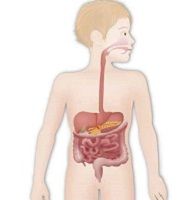Article
Multiple Sclerosis Patients have Different Gut Microbiota
Author(s):
There are key differences in the gut microbial community composition in children with early-onset multiple sclerosis compared to healthy children without multiple sclerosis.

There are differences in the gut bacteria among children with and without multiple sclerosis (MS), according to findings published in the European Journal of Neurology.
Researchers from the University of British Columbia examined children’s fecal bacterial community composition in order to compare the microbial community profiles of children with early-onset pediatric MS and control children matched for age and sex. There were 18 pediatric MS patients and 17 matched controls aged between 4 and 18 years old enrolled in the study. The investigators catalogued characteristics of the bacteria such as beta diversity and taxa abundance.
The researchers suspected gut microbial community composition was influential in neurological disease. The patients had a short mean disease duration (about 11 months) and half of the patients had never been treated with immunomodulatory drugs. The researchers determined that gut bacteria diversity was not linked to MS status, exposure to immunomodulatory drugs was related.
Compared to the control cases, MS patients had what the study authors called “significant enrichment” in relative abundance for members of the Desulfovibrionaceae (Bilophila, Desulfovibrio and Christensenellaceae) and depletion in Lachnospiraceae and Ruminococcaceae.
“While these findings are preliminary, they are intriguing,” the study’s lead author Professor Helen Tremlett said in a press release. “We also observed some similarities between our findings and other emerging gut microbiota studies in MS; whether these indicate a ‘gut signature’ of MS or of broader autoimmune disease remains to be determined. We also found differences in the gut microbiota composition between those children taking a disease modifying drug for their disease compared with those who were not. This finding warrants further study.”
The study authors added that some of the microbial genes were able to predict MS vs. control subjects, regardless of exposure to immunomodulatory drugs.
“In recent onset pediatric MS, perturbations in the gut microbiome composition were observed, in parallel with predicted enrichment of metabolic pathways associated with neurodegeneration,” the writers concluded. “Findings were suggestive of a pro-inflammatory milieu.”





